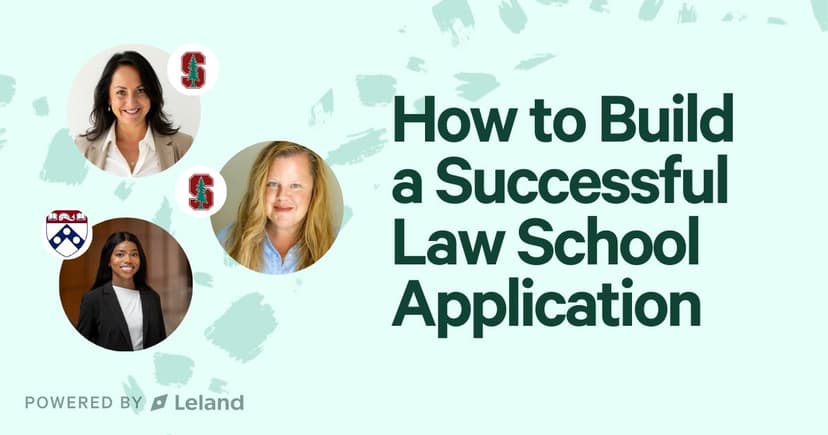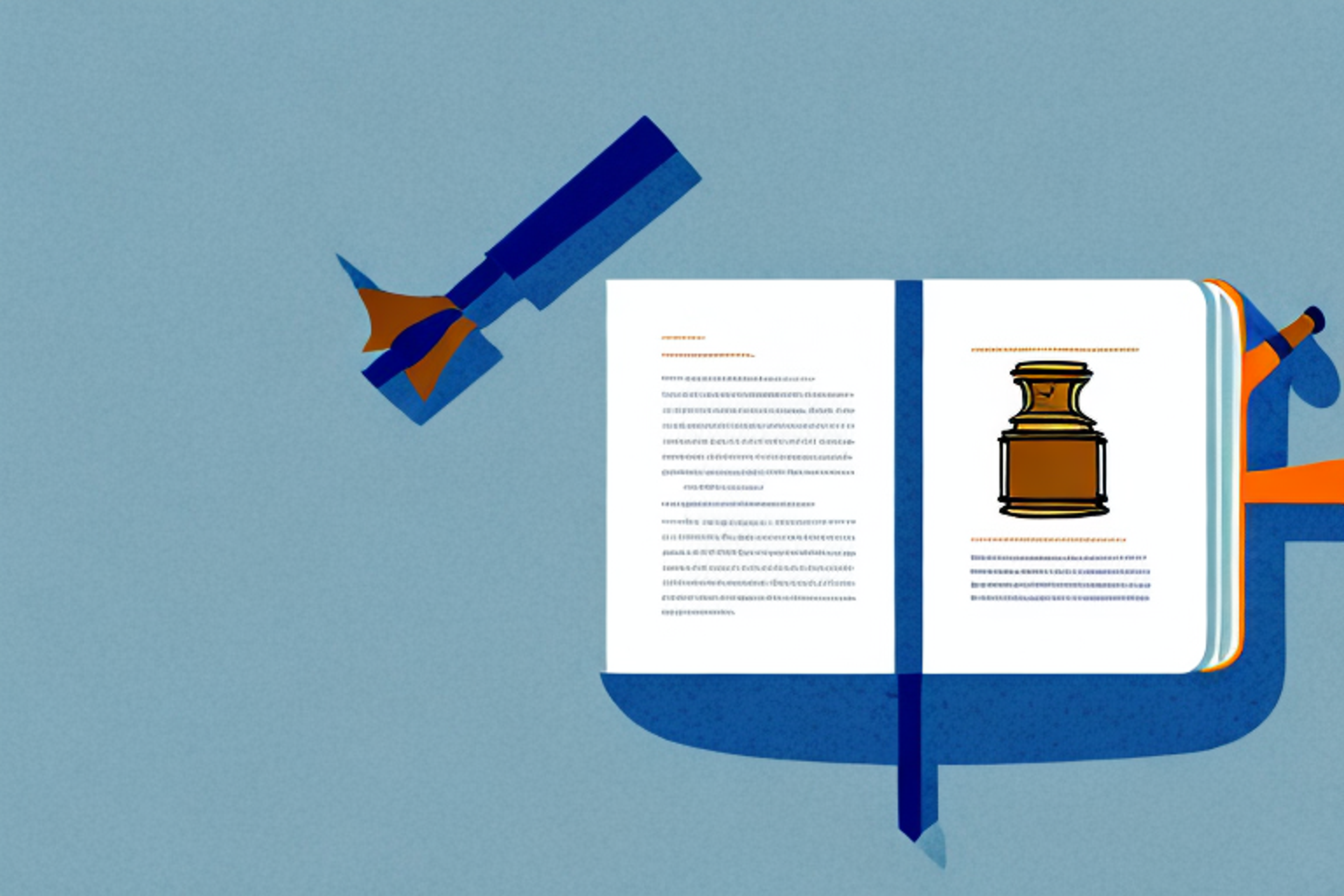NYU Law Personal Statement Guide: Examples & Admit Tips
Learn how to craft a powerful personal statement that will impress the admissions committee at New York University School of Law.
Posted August 25, 2025

Join a free event
Learn from top coaches and industry experts in live, interactive sessions you can join for free.
Table of Contents
Every year, NYU Law receives thousands of applications from students with excellent GPAs and strong LSAT scores. The admissions committee members know you’re smart; what they want to know is who you are. That’s where the personal statement comes in. At a top-tier institution like NYU, the essay often makes the difference between two equally qualified candidates. It’s your opportunity to demonstrate the personal qualities, lived experiences, and clarity of purpose that numbers can’t capture.
In this guide, you’ll find a step-by-step framework, shaped by expert insights and real examples, for writing a statement that not only reflects your story but also shows why you’re ready to thrive at NYU Law.
Read: How to Write a Powerful Personal Statement for Your Law School Applications
Why the NYU Law Personal Statement is Essential
Like in other T14 law schools, the personal statement plays a crucial role in the admissions process at NYU School of Law. This essay allows applicants to go beyond their standardized test scores, LSAT results, and academic achievements to demonstrate their unique qualities, career goals, and motivation for pursuing a law degree. For the admissions officers, the personal statement provides insight into an applicant’s potential to thrive in NYU Law's rigorous academic environment and contribute meaningfully to its vibrant community.
The personal statement also offers an opportunity to address any weaknesses in the application, such as a lower GPA or gaps in professional experience. By sharing a personal story, applicants can contextualize these challenges and highlight the resilience and determination that make them strong candidates for NYU Law School.
Admission Requirements for NYU School of Law
NYU School of Law evaluates applicants holistically, weighing not only academic metrics like LSAT scores but also professional experiences, personal qualities, and overall alignment with the school’s mission. Applications are submitted through the Law School Admission Council (LSAC) Credential Assembly Service (CAS), which processes transcripts, recommendations, and test results for the vast majority of applicants. The core requirements include:
- Personal Statement – A critical component of the application, giving applicants space to highlight a defining moment that shaped their interest in pursuing law, their career goals, and how they would contribute to the NYU community.
- Transcripts – All academic records must be submitted through CAS. While strong grades matter, the admissions committee reviews performance in the context of the applicant’s full academic and professional profile.
- Standardized Test Scores – NYU accepts both the GRE and the LSAT, though competitive LSAT scores remain the most common among admitted students. Submitting strong test results is important for gaining admission, but scores are considered in tandem with the rest of the file.
- Letters of Recommendation – Two letters are typically required, preferably from professors or faculty members who can speak to intellectual ability, or from professionals at law firms or other rigorous environments who can attest to work ethic and potential.
- Resume / Work Experience – While not strictly required, professional experience, especially in legal, public service, or advocacy roles, helps applicants show demonstrated leadership and readiness for the challenges of law school.
- Early Decision Program – For applicants certain that NYU is their top choice, the Early Decision deadline is November 15. This option provides a binding pathway to the school, underscoring commitment.
By carefully meeting these requirements and going beyond metrics like LSAT scores to demonstrate intellectual curiosity, resilience, and authentic motivation, candidates significantly improve their chances of gaining admission. Tailoring the personal statement to NYU’s unique culture and strengths ensures applicants stand out among the vast majority who rely only on credentials.
Read: How to Get Into NYU Law School
What Admissions Officers Look for in a Personal Statement
Admissions officers at NYU Law are interested in understanding the applicant's journey toward pursuing a legal education. They look for personal stories that highlight the candidate's passion for law, experiences that have shaped their decision, and how they envision contributing to the NYU Law community. A well-crafted personal statement should answer the question: "Why am I perfect for NYU Law School?
NYU Law Personal Statement Format
A clear and organized format is essential for creating an impactful NYU Law personal statement. Follow these steps to structure your essay effectively:
| Section | Purpose | Expert Guidance | Example Outline |
|---|---|---|---|
| Introduction | Capture attention and establish your theme | Start with a strong hook (anecdote, moment, or insight) and set up the central theme of your essay. | “The first time I walked into a courtroom to interpret for my parents, I realized how powerful language—and law—could be. That moment sparked my commitment to bridging barriers through legal advocacy.” |
| Chronological Narrative | Build a logical and easy-to-follow story | Begin with the defining catalyst that sparked your interest in law and trace your path forward, showing growth and commitment. | Describe how that experience led you to study political science, volunteer at a legal aid clinic, or pursue internships that deepened your passion for advocacy. |
| Body Paragraphs | Provide depth and evidence | Highlight one or two concrete examples—academic, professional, or personal—that demonstrate resilience, leadership, or impact. Always connect back to your motivation for law. | Discuss leading a research project on constitutional rights or working at a nonprofit addressing housing inequality, and how these prepared you for NYU Law’s rigorous environment. |
| Conclusion | Tie the essay together and look forward | End with your future goals and how NYU Law will help you achieve them. Where possible, loop back to your introduction for a cohesive “full circle” effect. | “Just as I once translated for my parents, I now want to interpret the law for underserved communities. At NYU Law, I will gain the tools to advocate effectively and build a career dedicated to justice.” |
Pro Tip: Keep your essay within the 500-word limit, prioritize clarity over complexity, and remember that structure itself signals strong judgment and writing ability–two qualities NYU Law values.
Read: Law School Personal Statement Format & Length: Guide & Tips
Expert Tips for Crafting an Exceptional NYU Law Personal Statement
1. Open with a memorable, story-driven introduction
Your first sentence matters. Admissions officers read thousands of essays, and many blur together, unless the opening line pulls them in. The strongest introductions begin with a moment, not a résumé bullet. Think of an anecdote that shaped your interest in law: translating for a parent at a government office, watching a loved one face injustice, or seeing how policy affected your community. From there, set up a clear thesis that signals the essay’s direction. A great introduction answers: What experience defines my path to law, and how does it connect to NYU?
2. Build the body with specific, relevant experiences
The body of your essay is where you prove credibility. Choose one or two experiences that best illustrate your readiness for law school—such as internships, research, activism, or personal challenges that sharpened your resilience and problem-solving. Avoid listing everything; depth is more compelling than breadth. For each example, explain not just what you did but what you learned—and how it connects to your motivation to study law. Every paragraph should build toward why you belong at NYU specifically.
3. Demonstrate passion with purpose
Admissions officers want to see authentic commitment, not generic ambition. Frame your passion for law as more than an interest—it should read as a calling shaped by lived experience. For instance, if you’re drawn to international law, tie it to your work with global NGOs or your bicultural upbringing. Then, connect your aspirations to NYU Law’s strengths—its clinics, centers, and faculty. The best essays leave no doubt that the applicant has both passion and a plan.
4. Tailor your essay with NYU-specific research
Generic essays sink quickly in the T14. Show that you’ve done your homework: reference clinics like the Civil Rights Clinic or Engelberg Center on Innovation Law & Policy, programs such as the Hauser Global Law School, or faculty whose research aligns with your goals. Specificity signals genuine interest and helps the admissions committee picture you at NYU. Even one or two carefully chosen references can elevate your essay from good to outstanding.
5. Highlight leadership and collaboration
Lawyers rarely work in isolation, and NYU values students who can lead and collaborate. Highlight moments where you influenced a team, resolved conflict, or mobilized others toward a goal. This could come from a professional role, student leadership, or community service. Admissions officers look for signs that you’ll enrich classroom discussions, clinics, and the broader NYU Law community.
6. Polish your writing relentlessly
A brilliant story can be undermined by sloppy execution. Revise for clarity, flow, and conciseness. Use strong, active verbs and avoid passive constructions that dull your voice. Read your essay aloud; it’s the fastest way to catch awkward phrasing. Finally, seek feedback from trusted mentors or admissions coaches who know what resonates at the T14 level. Your essay should be as precise and polished as a legal brief: compelling, error-free, and professional.
7. End with a forward-looking conclusion
A strong conclusion doesn’t just summarize but inspires. Reconnect to your opening anecdote, then pivot toward the future. Show how your experiences pursuing law have shaped your long-term vision and how NYU Law will give you the tools to excel in the legal profession. Admissions officers should see clearly not only why law but why NYU, especially when compared to other law schools. By closing with a forward-looking statement that ties your story to your career goals, you leave the reader with the sense that your journey is unfinished—and that NYU is the essential next step.
8. Seek feedback and partner with top law admissions coaches
Seeking feedback is essential for refining your personal statement, and while mentors, professors, and legal professionals can offer valuable advice, partnering with top law admissions coaches provides a competitive edge. These experts specialize in crafting standout essays tailored to schools like NYU School of Law, ensuring your strengths, character, and goals align perfectly with the admissions committee's expectations.
Admissions coaches offer targeted feedback, enhance your storytelling, and help you avoid common pitfalls, transforming your draft into a polished, compelling narrative. With their guidance, you can confidently present an essay that sets you apart from other applicants and increases your chances of admission to this prestigious program.
NYU Law Personal Statement Examples
Reviewing real-life examples of successful NYU Law personal statements provides valuable insights into what resonates with the admissions committee at NYU School of Law. Below are three detailed examples, along with an analysis of what made them exceptional, followed by actionable tips to elevate your own personal statement.
Example 1: A Fight for Justice in the Family (Labor & Employment Law)
When my father was wrongfully terminated after twenty years at his company, the injustice didn’t feel abstract, but it sat at our dinner table every night. I watched the man who taught me integrity and perseverance struggle to explain to his children why loyalty and hard work had not been enough. The financial strain was heavy, but what stayed with me was the silence in his voice, the loss of dignity that came from knowing he had been discarded unfairly.
I couldn’t undo what had happened, but I could channel my anger into action. In college, I began volunteering at a local nonprofit that advocated for workers’ rights. There, I met men and women whose stories echoed my father’s, employees who had been denied fair wages, safe conditions, or even their jobs because they dared to speak up. At first, my role was small: distributing flyers, helping with intake interviews, and drafting outreach materials. But as I became more involved, I realized that advocacy wasn’t just about telling stories—it was about understanding the law that made those stories possible, and finding ways to hold institutions accountable.
My academic work began to mirror this passion. I pursued courses in labor history and employment discrimination, and my senior research project explored the intersection of civil rights and workplace protections. Each paper I wrote and each case I studied reaffirmed that my future lay in law—not as an observer of injustice, but as someone equipped to fight it.
What draws me to NYU Law is its deep commitment to public service and social justice. Programs like the Center for Labor and Employment Law and clinics focused on civil rights litigation align perfectly with my goals. Beyond academics, NYU’s ethos of community and advocacy resonates with the values my father instilled in me: that dignity in work is non-negotiable and that silence in the face of injustice is complicity.
I aspire to be the advocate my father never had—an attorney who not only understands the law but uses it to ensure that no worker’s livelihood can be stripped away by prejudice or power. NYU Law offers the training, mentorship, and platform to transform that aspiration into a career dedicated to justice.
Expert Analysis: This version is powerful because it combines vulnerability with agency. The applicant shows action, growth, and a direct link to NYU Law’s social justice ethos.
Example 2: Bridging Cultures Through International Law
I grew up translating not just language, but culture. As the child of immigrant parents, I often found myself mediating between relatives whose disagreements stemmed less from what they said than from how they understood the world. At thirteen, I became the unofficial interpreter at family gatherings, explaining customs, smoothing conflicts, and finding common ground when perspectives clashed. I didn’t realize it at the time, but those moments were my first lessons in cross-cultural negotiation.
This instinct to bridge divides carried into my academic path. In college, I majored in international relations and wrote a senior thesis on conflict resolution in divided societies. I also interned at an international nonprofit organization focused on human rights, where I researched post-conflict reconciliation programs and conducted interviews with activists working across borders. Each experience reinforced my belief that the law is one of the most powerful tools we have for fostering cooperation in a fragmented world.
I have learned that cultural conflict rarely has a single solution. It requires patience, empathy, and a framework that respects multiple perspectives. International law, with its emphasis on balancing sovereignty with cooperation, offers exactly that. I am drawn to the intellectual challenge of navigating competing interests, as well as the practical impact of helping communities find peace without losing identity.
NYU Law’s global programs, particularly its Hauser Global Law School and international law clinics, would give me the training and exposure I need to pursue this path. The school’s emphasis on comparative and transnational law matches my long-term goal of working with international organizations to mediate cross-border disputes. More importantly, NYU’s diverse community will challenge me to see issues from perspectives I cannot fully access on my own.
Just as I once mediated between relatives around a dinner table, I now aspire to mediate between nations, cultures, and communities. NYU Law offers the global lens, rigorous training, and collaborative spirit to turn that aspiration into a career dedicated to building bridges where others see walls.
Expert Analysis: This narrative stands out because it’s rooted in a personal story but grows outward into a global vision, directly aligning with NYU’s international law strengths.
Example 3: Innovation Through Intellectual Property Law
At a small tech startup, innovation was the air we breathed, but so was risk. Each new idea brought excitement, yet every brainstorming session ended with the same question: What if someone else takes this? I watched the founders, brimming with creativity, grow increasingly anxious about protecting what they had built. That tension made me realize that invention without protection is fragile.
My role as a project coordinator gave me a front-row seat to the challenges of intellectual property. I researched competitors, assisted with product documentation, and attended strategy meetings where legal uncertainty influenced business decisions. The experience was eye-opening. I saw how quickly a lack of legal infrastructure could undercut innovation, and I began to imagine a career where I could help creators safeguard their work.
Outside of work, I deepened my interest in intellectual property law through coursework in technology policy and economics. I sought mentors in the field, attended IP law panels, and even shadowed an attorney handling a patent dispute. These experiences convinced me that intellectual property law sits at the intersection of creativity and justice—a place where the law doesn’t just regulate, but empowers.
NYU Law’s intellectual property offerings are unparalleled. From the Engelberg Center on Innovation Law & Policy to clinics that allow students to work directly on IP cases, the opportunities to learn and practice in this space are immense. I am particularly drawn to the chance to study under faculty whose research addresses the challenges of protecting innovation in the digital age, challenges I witnessed firsthand at the startup.
What excites me most about NYU is the opportunity to merge theory with practice. I want to leave law school not only with a deep understanding of intellectual property law but with the experience of applying it to real-world problems. My goal is to become an attorney who ensures that creators—whether in tech, the arts, or emerging industries—can pursue bold ideas without fear of losing them.
At the startup, I learned the “why” of intellectual property law. At NYU Law, I will gain the “how” to turn that understanding into a career protecting the ideas that move society forward.
Expert Analysis: This essay succeeds because it frames professional experience as a catalyst for purpose, then shows a clear, researched connection to NYU Law’s intellectual property resources.
Common Mistakes to Avoid
There are a few common mistakes that applicants make when writing personal statements. Be sure to avoid these common pitfalls:
- Overloading your essay with clichés makes your writing feel generic and uninspired.
- Failing to connect your experiences to the law weakens your narrative and relevance.
- Using vague or overly general language fails to provide specific insights into your motivations.
- Writing a resume-style essay listing accomplishments comes across as impersonal and lacks depth.
- Exaggerating or fabricating details is unethical and could harm your application if discovered.
- Ignoring NYU-specific elements signals a lack of genuine interest in the school.
- Failing to proofread creates a poor impression with spelling errors and grammatical mistakes.
- Focusing too much on weaknesses without demonstrating growth can leave a negative impression.
- Exceeding the word limit reflects an inability to follow instructions and organize effectively.
Why Tailoring Your Personal Statement for NYU School of Law is a Must
For students interested in New York University School of Law, a tailored personal statement is more than a formality; it’s proof of fit. Admissions officers can easily distinguish between generic essays recycled for other law schools and those crafted with the intention for NYU. Interested applicants who take the time to align their narrative with NYU’s values signal both preparation and seriousness, which often separates admitted students from those who fall short.
Tailoring begins with research. Go beyond surface-level mentions of location or prestige. Explore NYU’s history, academic culture, and distinctive programs that resonate with your aspirations. For instance, referencing the Center for Constitutional Law, international law clinics, or a professor’s groundbreaking scholarship demonstrates that you’ve engaged deeply with the school’s offerings. Applicants who connect their personal story to these resources illustrate a vision for how NYU specifically will help them succeed in the legal profession.
Equally important is showing how your experiences prepare you to contribute meaningfully to NYU’s collaborative community. If you’ve developed critical thinking and advocacy skills through activities like debate club, highlight how those skills will enrich class discussions, clinics, and collaborative projects. This not only reinforces your readiness for NYU but also demonstrates the qualities of leadership and engagement that the admissions committee values.
Finally, remember that your personal statement works alongside your broader application package, including transcripts, recommendations, and materials processed through the Credential Assembly Service. Together, these documents provide context and evidence of your readiness. A polished, NYU-specific essay ensures that your voice comes through clearly amid the data points, convincing the committee that you belong at this institution over other law schools.
A tailored statement positions you as a future NYU Law student who has the drive, focus, and clarity of purpose to thrive in one of the country’s most competitive academic environments.
Partner with Top Law School Admissions Consultants for Success
Crafting a compelling personal statement that aligns with NYU School of Law’s values and admissions expectations is no small task. While the provided structure can guide your writing, working with top law school admissions coaches can give you the edge needed to truly stand out. These experts specialize in tailoring personal statements to specific schools, helping you refine your narrative, highlight your unique qualities, and connect your experiences to NYU Law’s mission. With their personalized advice and proven strategies, you can confidently create an essay that not only meets but exceeds the expectations of the admissions committee, significantly boosting your chances of acceptance.
You can also check out our law school application bootcamp and free events and group classes for more strategic insights.
See: The 10 Best Law School Coaches (2025) | Law School Admissions Consulting That Works
Read next:
- Harvard Law Personal Statement Guide: Examples & Admit Tips
- Stanford Law Personal Statement Guide: Examples & Admit Tips
- Northwestern Law Personal Statement — Overview & Analysis
- T14 Law Schools: Acceptance Rates & Class Profiles
- How to Get Into Law School: Advice From an Expert
- Law School Application Deadlines (T20 Programs)
FAQs
What does NYU look for in a personal statement?
- In a concisely written statement, please describe your past and present work as it relates to your intended field of study, your educational objectives, and your career goals.
What is the mission statement of NYU Law School?
- For more than thirty years, NYU has pioneered the study and development of experiential learning methods. NYU's celebrated Lawyering Method assures that every beginning law student is simultaneously engaged in the study of law and in the interactive practices of interpreting and using law.
How long should a NYU Law personal statement be?
- This is a brief statement—make it no more than 500 words. It is also personal. Describe aspects about yourself, your accomplishments, or your academic and professional goals.
What is the acceptance rate for NYU AD 2025?
- Admissions. In 2021, the university matriculated 530 new entrants from the Class of 2025 who were selected from more than 17,300 applicants worldwide, an acceptance rate of about 3%.
What kind of essays does NYU like?
- Your NYU supplemental essays are your chance to be your most authentic self. Even though this prompt is not a “why school” essay, you should be finding parallels between NYU's and your own personal values. Writing about your passions and motivations should answer the question “Why NYU?” for the admissions committee.
What is NYU Law best known for?
- The Law School is at the forefront of interdisciplinary research and teaching, with special strengths in law and philosophy, economics, politics, history, and social theory. We also offer an unsurpassed array of courses in international, comparative, and foreign law.























